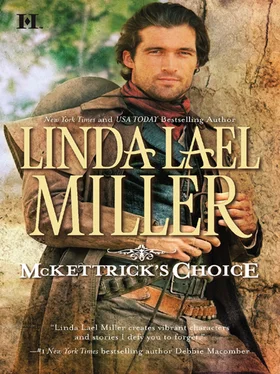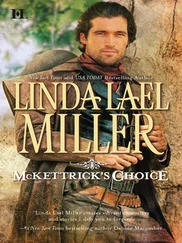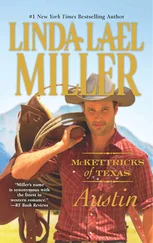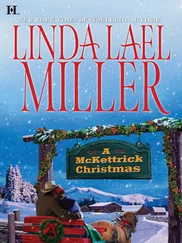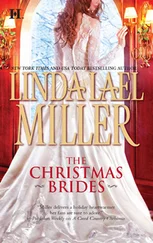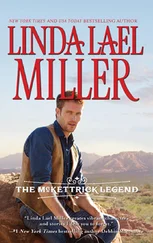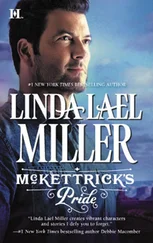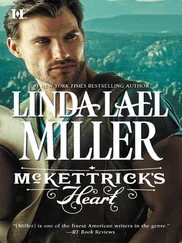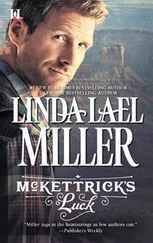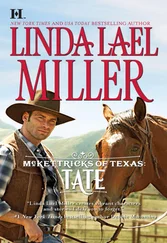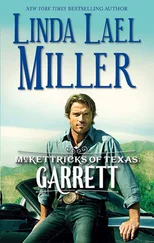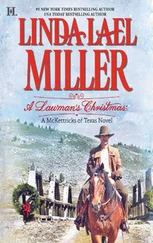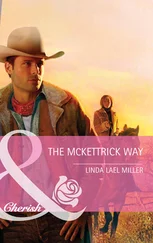God in heaven. It was Holt.
John let his own scythe fall, though he was not a man to be careless with tools, and hurried toward the pair, moving as fast as his rheumatism would allow.
Holt swung Tillie around in a circle and planted a smacking kiss on her forehead. She was laughing and crying, both at once, and hugging Holt’s neck as if she’d drown if he let her go.
“Holt,” John said, drawing up at the edge of the field and fair choking on the word.
The familiar grin flashed. “Yes, sir. It’s me, all right.”
John took a step toward him, still disbelieving. His vision blurred, and his throat closed up so tight he couldn’t have swallowed a hayseed, even with good whiskey to wash it down.
Holt stroked Tillie’s back; she still hadn’t turned loose of his neck. “I see my little sister is all grown-up,” he said.
Hope swelled up inside John Cavanagh, hope such as he hadn’t felt in a year of Sundays. “You figurin’ on stayin’?” he asked, and ran an arm across his mouth.
“Until you run me off,” Holt replied, and grinned again.
“Go ahead and hug him, Pa,” Tillie said joyously. “It’s the only way you’ll believe he’s real.”
John took another step, stumbling a little, and put his arms around the man he still thought of as his son. The two of them clung for a moment, and John felt tears on his old black face.
“Come on inside,” he managed when they drew apart again. “With you here, Tillie’s like to cook up a storm.”
Holt was looking around the place, taking in the sagging barn, the downed fences, the skinny cattle and slat-ribbed horses.
If John hadn’t been so damn glad to see the boy, he might have felt shame. Time enough later on to answer all those questions he saw brewing in Holt’s face. Tell him how Templeton and the bankers were trying to force him out.
Right now, there were more important things to be said.
“You bring me a picture of that little girl of yours?” John demanded, hobbling along between Holt and Tillie as the three of them made for the house.
Holt took a wallet from his inside pocket and pulled out a daguerreotype.
John snatched it from his hand and paused, right in the middle of the path, to have himself a look. “She’s the image of Olivia,” he said, just before his throat closed up again.
“Let me see,” Tillie pleaded. “Let me see!”
Reluctantly, John handed over the likeness.
Tillie gave a little cry, drinking in the image with her eyes. “You should have brought her,” she wailed. “Why didn’t you bring her?”
Holt laid a gentle hand on Tillie’s shoulder. She was twenty-eight years old, but simple-minded as a child. Something to do with the troubles her mother had bringing her into the world.
“It’s too far,” Holt said quietly. “And she’s going to school.” He glanced toward his horse, grazing happily in the good Texas grass. At least they still had the grass. “I brought you something, though. It’s in my saddlebags—left-hand side.”
Tillie picked up her skirts and ran for the gelding, supper forgotten, for the moment at least.
“Frank Corrales sent me a letter,” Holt said, watching as Tillie unbuckled the saddlebag and plunged an eager hand inside. “Said somebody was trying to force you off your land. Looks like he knew what he was talking about.”
Tillie pulled out a doll with long dark ringlets and skin the same coffee color as her own.
“Where the devil did you find a colored doll?” John asked.
“Bought it along the way,” Holt said, watching fondly as Tillie hugged the doll to her flat chest and danced around in a circle. In the next instant, he looked somber again. “Who’s after the land, John? Gabe told me his version, but I want to hear it from you.”
John rubbed his chin. Once Holt got his mind around something, there was no getting it loose. “Man named Templeton. His place borders this one, and he wants the grass for his fancy English cattle.” Tears welled in John’s eyes as he watched Tillie. Where would they go, if they left this ranch?
Four of John’s children were buried here, and so was Ella, his angel of a wife. There’d been as much blood and sweat fall on the land as rain, and more than a few tears, too.
“The banker’s his friend,” John went on, when he could. “They called my loans. Tried to cut off my water supply, too. Even rustled some of my cattle, though I can’t prove it.”
Holt laid a hand on John’s back. He didn’t speak, but he didn’t need to. John knew his intentions well enough.
“You can’t fight them, Holt,” John said, because he knew how Holt’s mind worked. “There must be three dozen men riding for that ranch, and they’re fierce as Comanches on the warpath.”
Tillie was on her way back, beaming and hugging that doll for all she was worth.
“Maybe,” Holt said. “But I reckon I’m at least twice that ornery.”
LORELEI WAITED until after her father had left the house the next morning before unlocking her bedroom door and making for the back stairs. Angelina, the family’s long-time cook and housekeeper, turned from the gleaming cookstove to favor her with an encouraging if somewhat strained smile.
“I was about to bring your breakfast on a tray,” Angelina said, in gentle reprimand. “Do you know it’s past ten o’clock?”
The mere idea of food made Lorelei shudder, and she was only too aware of the time; she’d been watching the clock on her vanity table since just after sunrise. “Where’s Maria?” she asked, and was ashamed that she’d almost whispered the words.
Angelina’s generous mouth pursed. “Puta,” she muttered. “She is gone—good riddance to her.” In case she’d offended heaven by calling the errant housemaid a whore, the woman crossed herself in a hasty, practiced motion.
Lorelei stood behind a chair at the kitchen table, realizing she’d been gripping the back of it with such force that her knuckles stood out, the skin white with stretching. “Father sent her away?”
Angelina made a face and waved a plump, dismissive hand. “Men are no good at sending las putas away. I told her to get out, or I’d work a chicken curse and make her sprout feathers full of lice.”
In spite of the lingering tension, and a strange and totally irrational disappointment that the judge hadn’t been the one to dismiss Creighton’s little baggage from under his roof, Lorelei laughed. “You didn’t.”
“I did,” Angelina confirmed with satisfaction, motioning for Lorelei to take her customary place at the table. When she complied, the older woman poured a cup of freshly brewed tea and set it in front of her. “Drink. Your breakfast is almost ready. Hotcakes, brown on the edges, just the way you like them.”
Lorelei lifted the china tea cup in both hands, fearing she’d spill it if she didn’t take a firm hold. “I don’t want anything to eat,” she said, after a restorative sip.
“I don’t care what you want,” Angelina replied crisply, and went back to the stove. “Your papa, he is very angry. You will need all your strength to deal with him.” She paused in her deft labors, regarding Lorelei as though she were a jigsaw puzzle with one piece missing. “Why did you do it? Why did you burn your wedding dress for all of San Antonio to see?”
“You know why, Angelina,” Lorelei said.
“I am not asking why you did not marry Mr. Bannings,” Angelina pointed out. “He is a coyote dropping, not a man. What I want to know is, if you had to burn the dress, why do it in front of the whole town? Now, all the women will be gossiping, and all of the men will avoid you.”
Lorelei took another sip of tea, then sighed. “The men would do well to avoid me,” she said, with a trace of humor, “and the women would gossip, one way or the other.”
Читать дальше
